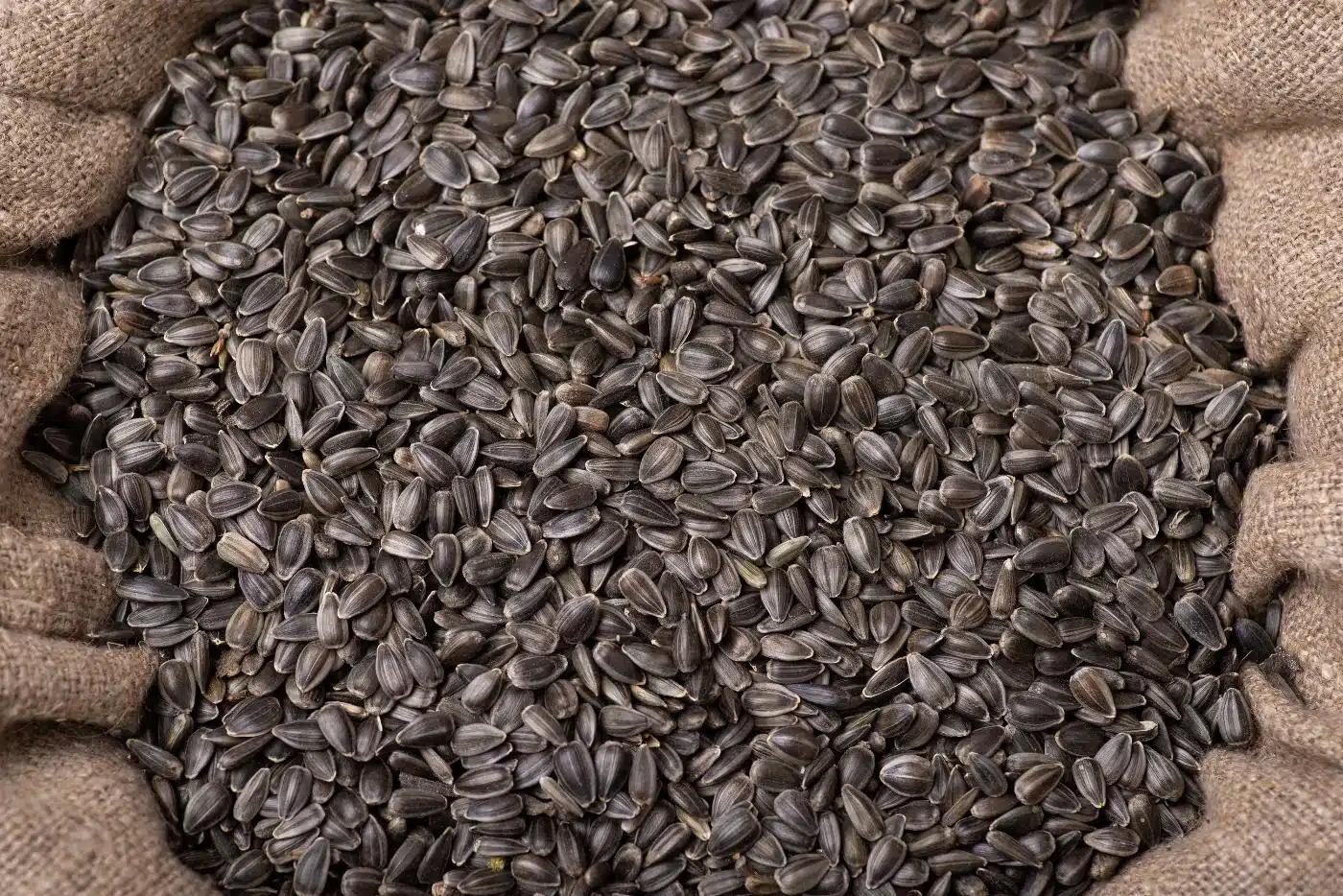Sunflower seeds are a tasty and convenient snack that packs a nutritional punch.
These small but mighty seeds are loaded with essential vitamins, minerals, and healthy fats that can benefit your overall health.
In this blog post, I’ll explore the nutritional profile of sunflower seeds, their potential health benefits, and how to incorporate them into your diet.
Key Takeaways
- Sunflower seeds are an excellent source of vitamin E, selenium, and other essential nutrients.
- Regular consumption of sunflower seeds may help reduce inflammation, support heart health, and manage blood sugar levels.
- While nutritious, sunflower seeds are calorie-dense and should be consumed in moderation.
- Potential downsides include allergic reactions, intestinal blockages, and exposure to cadmium.
You will learn about the impressive nutritional profile of sunflower seeds and how they can contribute to a healthy diet.
Nutritional Profile
Sunflower seeds are a powerhouse of essential nutrients. Let’s take a closer look at what they offer.
One 28-gram serving of sunflower seeds contains:
- 14 grams of fat, mostly heart-healthy unsaturated fats
- 5.5 grams of protein
- 6.5 grams of carbohydrates, including 3 grams of fibre
The same serving also provides a significant portion of your daily needs for several vitamins and minerals:
- Vitamin E: 37% of the RDI
- Selenium: 32% of the RDI
- Manganese: 30% of the RDI
- Copper: 26% of the RDI
Sunflower seeds are also rich in antioxidants and beneficial plant compounds, such as phenolic acids, flavonoids, and chlorogenic acid. These compounds work together to protect your cells from damage caused by harmful free radicals.
Potential Health Benefits
The unique combination of nutrients in sunflower seeds may offer several potential health benefits.
Sunflower seeds contain vitamin E, selenium, and plant compounds that possess anti-inflammatory properties. Studies have shown that people who regularly consume sunflower seeds and other seeds have lower levels of inflammatory markers.
The high content of unsaturated fats, particularly linoleic acid, can help lower cholesterol levels and reduce the risk of heart disease. Magnesium and other compounds in sunflower seeds may also help relax blood vessels, leading to lower blood pressure.
While more research is needed, some studies suggest that sunflower seeds may help manage blood sugar levels. The chlorogenic acid in sunflower seeds, along with their protein and fat content, may slow down the absorption of sugar from carbohydrates.
How to Incorporate Sunflower Seeds
Now that you know about the nutritional benefits of sunflower seeds, you might be wondering how to include them in your diet.
Eat a handful of roasted, unsalted sunflower seeds as a simple, healthy snack or add them to your favourite trail mix for a crunchy, nutritious boost. You can also sprinkle sunflower seeds on top of yoghurt or fruit parfaits for added texture and flavour.
In cooking and baking, try stirring sunflower seeds into hot or cold cereals or tossing them into salads or stir-fries for added protein and healthy fats. Sunflower seed butter can be a delicious, allergy-friendly alternative to peanut butter.
To keep your sunflower seeds fresh and prevent rancidity, store them in an airtight container in a cool, dry place. For longer storage, keep sunflower seeds in the refrigerator or freezer.
Downsides and Precautions
While sunflower seeds offer numerous health benefits, there are a few potential downsides to keep in mind:
- Sunflower seeds are calorie-dense, so it’s important to watch your portion sizes if you’re trying to maintain or lose weight.
- Some packaged sunflower seeds may be high in sodium, especially those sold in the shell. Opt for unsalted or low-sodium varieties when possible.
- Sunflower seeds can contain trace amounts of cadmium, a heavy metal that can harm your kidneys if consumed in high quantities over time. To minimise your risk, limit your intake to about 28 grams per day.
- Although rare, some people may experience allergic reactions to sunflower seeds, with symptoms ranging from mild to severe. If you suspect an allergy, consult with an allergy specialist.
- Eating a large number of sunflower seeds in the shell may lead to intestinal blockages, especially if you accidentally swallow shell fragments. To avoid this risk, opt for shelled sunflower seeds or chew the seeds thoroughly before swallowing.
FAQ
Here are some frequently asked questions about sunflower seeds:
- Are sunflower seeds high in protein? Yes, sunflower seeds are a good source of plant-based protein, with about 5.5 grams per 28-gram serving.
- Can sunflower seeds help with weight loss? While sunflower seeds are nutrient-dense, they are also calorie-dense. They can be part of a weight loss diet when consumed in moderation and as part of a balanced eating plan.
- Are sprouted sunflower seeds better than raw? Sprouted sunflower seeds may have slightly higher levels of certain nutrients and lower levels of anti-nutrients compared to raw seeds. However, both forms offer health benefits.
- How many sunflower seeds should I eat daily? To avoid excessive calorie intake and minimise the risk of cadmium exposure, limit your daily intake to about 28 grams of sunflower seeds.
- Can sunflower seeds replace other nuts in recipes? Yes, sunflower seeds can be used as a nut-free alternative in many recipes, such as pestos, granolas, and baked goods. They provide a similar texture and nutty flavour.
A Nutritious Snack Choice
In conclusion, sunflower seeds are a delicious and nutritious snack that offer a wide range of health benefits. Packed with essential vitamins, minerals, healthy fats, and beneficial plant compounds, these tiny seeds can help reduce inflammation, support heart health, and manage blood sugar levels.
By incorporating sunflower seeds into your diet in moderation and being aware of potential downsides, you can enjoy their many benefits as part of a balanced lifestyle. So, why not sprinkle some sunflower seeds onto your next salad or snack on a handful for a quick, healthy boost?
